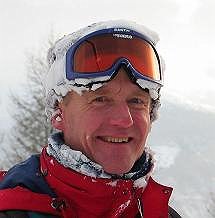SPLASH-I/E Keynote: The dream of a lifetime: Shaping how our children learn computingKeynote
In 2014 the National Curriculum in England was re-launched. Remarkably, it now requires that every child learns computer science, including programming, from primary school onwards. In effect, computer science has become an entirely new foundational subject discipline at school, alongside maths and natural science.
This seismic change gives us a huge opportunity and an equally-huge challenge. The opportunity is to shape how computer science becomes a vibrant reality in every classroom, in England certainly but then the world. But who will train the teachers? Who will find out whether discovery-based learning works better than more scaffolded approaches, or vice versa? What the right balance between plugged and unplugged activities is? How to convey the essence of computational thinking without it becoming buried in the myriad details of modern computer systems? How to assess the things we want students to learn, rather than assessing the things that are easy to measure? How can we exploit the symbiosis between maths and computing?
In my talk I’ll sketch the UK context, and the events that led to our astonishing 100% policy success. I’ll say a bit more about the challenges we face, and in particular I’ll elaborate on our desperate need for help from researchers in programming languages and computing education. The SPLASH community is perfectly placed to lead the charge, and now is the time to do so.
| DreamOfALifetime (SPLASH Oct 16 no video.pdf) | 3.4MiB |
Simon Peyton Jones, MA, MBCS, CEng, graduated from Trinity College Cambridge in 1980. After two years in industry, he spent seven years as a lecturer at University College London, and nine years as a professor at Glasgow University, before moving to Microsoft Research (Cambridge) in 1998. His main research interest is in functional programming languages, their implementation, and their application. He has led a succession of research projects focused around the design and implementation of production-quality functional-language systems for both uniprocessors and parallel machines. He was a key contributor to the design of the now-standard functional language Haskell, and is the lead designer of the widely-used Glasgow Haskell Compiler (GHC). He has written two textbooks about the implementation of functional languages.
More generally, he is interested in language design, rich type systems, software component architectures, compiler technology, code generation, runtime systems, virtual machines, and garbage collection. He is particularly motivated by direct use of principled theory to practical language design and implementation – that’s one reason he loves functional programming so much.
Mon 31 OctDisplayed time zone: Amsterdam, Berlin, Bern, Rome, Stockholm, Vienna change
10:30 - 12:10 | |||
10:30 50mTalk | SPLASH-I/E Keynote: The dream of a lifetime: Shaping how our children learn computingKeynote SPLASH-I Simon Peyton Jones Microsoft Research, Cambridge Media Attached File Attached | ||
11:20 50mTalk | Snap!: Scheme Disguised as Scratch SPLASH-I Brian Harvey University of California, Berkeley Media Attached | ||
